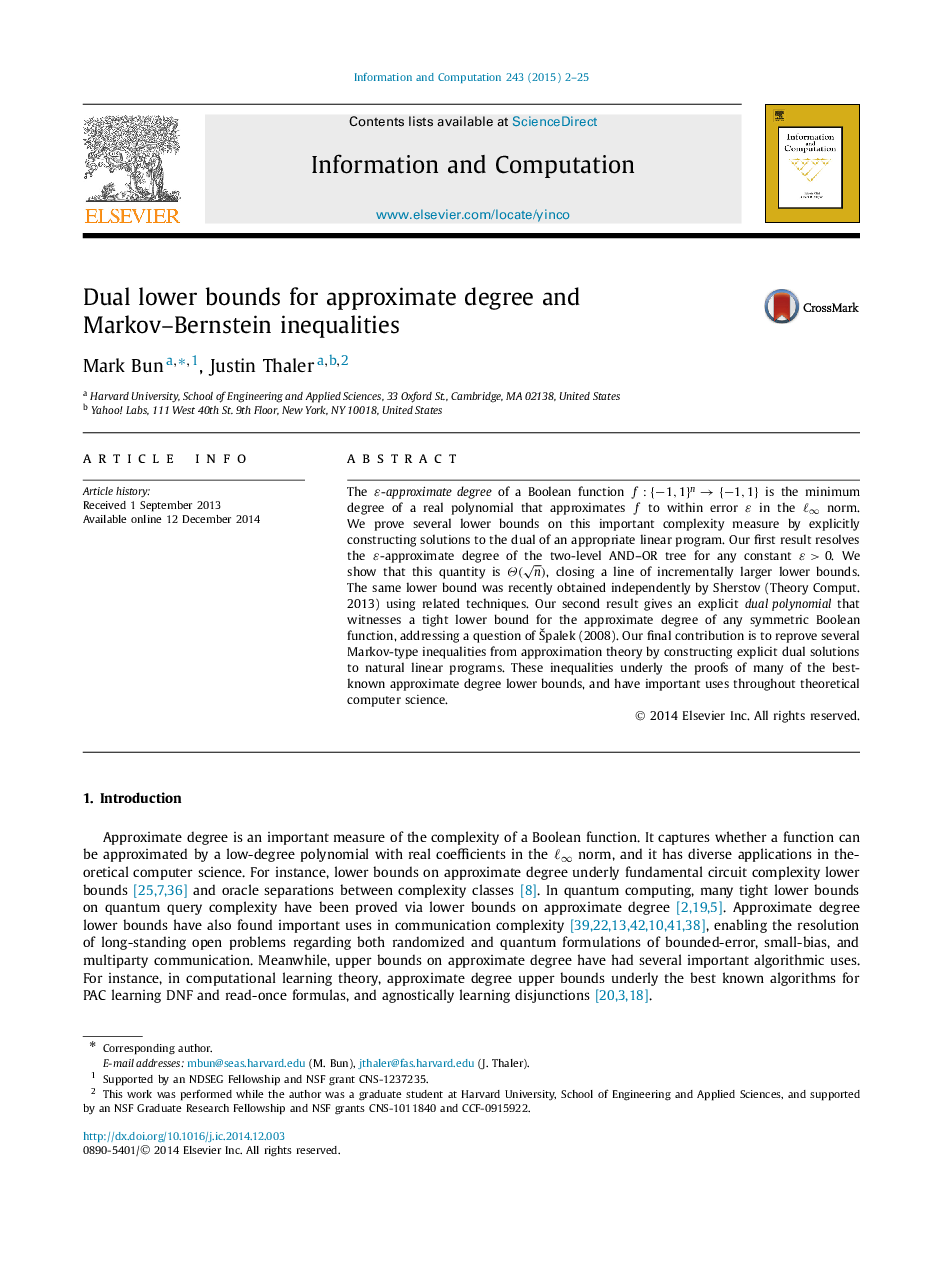| Article ID | Journal | Published Year | Pages | File Type |
|---|---|---|---|---|
| 426443 | Information and Computation | 2015 | 24 Pages |
The ε-approximate degree of a Boolean function f:{−1,1}n→{−1,1}f:{−1,1}n→{−1,1} is the minimum degree of a real polynomial that approximates f to within error ε in the ℓ∞ℓ∞ norm. We prove several lower bounds on this important complexity measure by explicitly constructing solutions to the dual of an appropriate linear program. Our first result resolves the ε -approximate degree of the two-level AND–OR tree for any constant ε>0ε>0. We show that this quantity is Θ(n), closing a line of incrementally larger lower bounds. The same lower bound was recently obtained independently by Sherstov (Theory Comput. 2013) using related techniques. Our second result gives an explicit dual polynomial that witnesses a tight lower bound for the approximate degree of any symmetric Boolean function, addressing a question of Špalek (2008). Our final contribution is to reprove several Markov-type inequalities from approximation theory by constructing explicit dual solutions to natural linear programs. These inequalities underly the proofs of many of the best-known approximate degree lower bounds, and have important uses throughout theoretical computer science.
